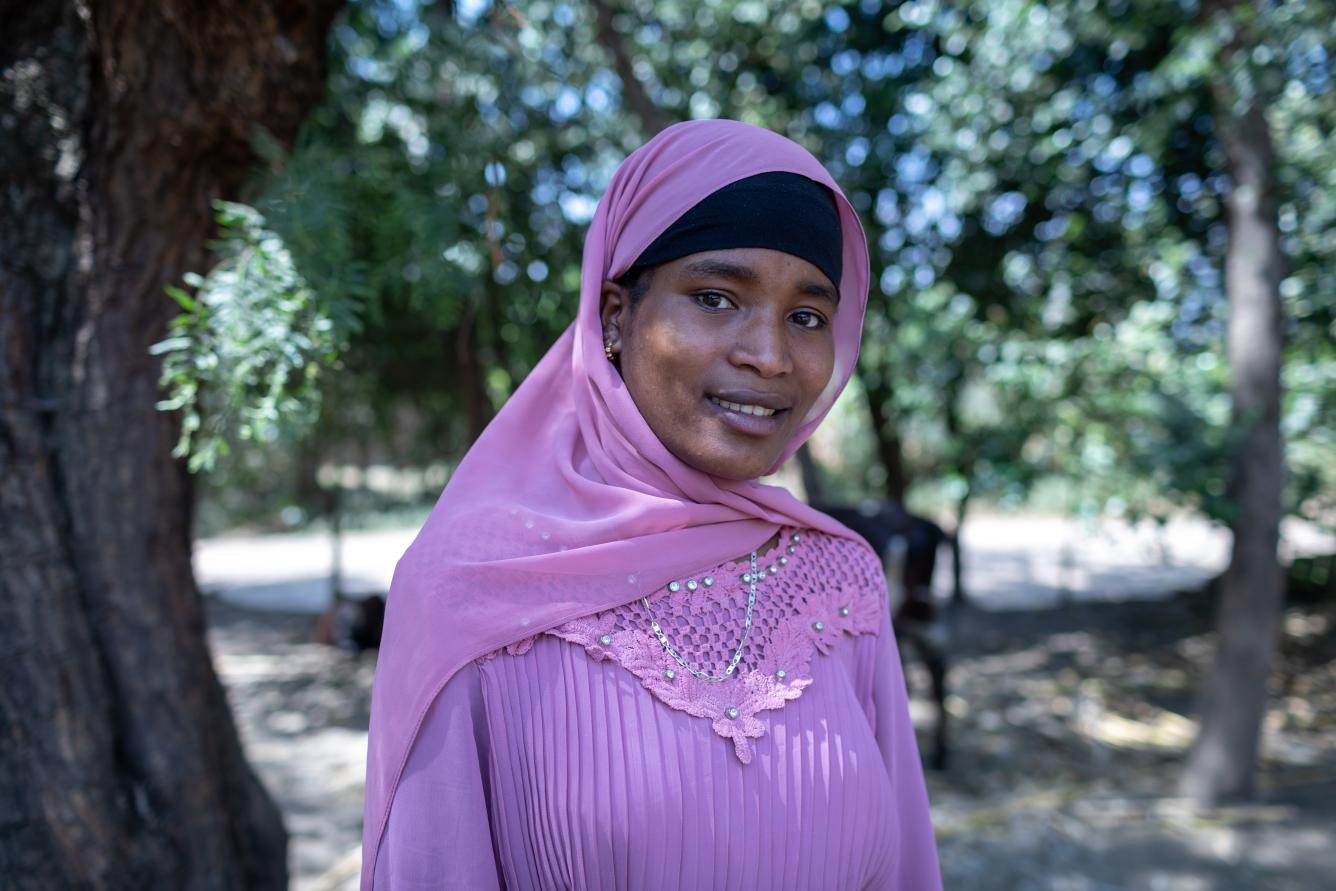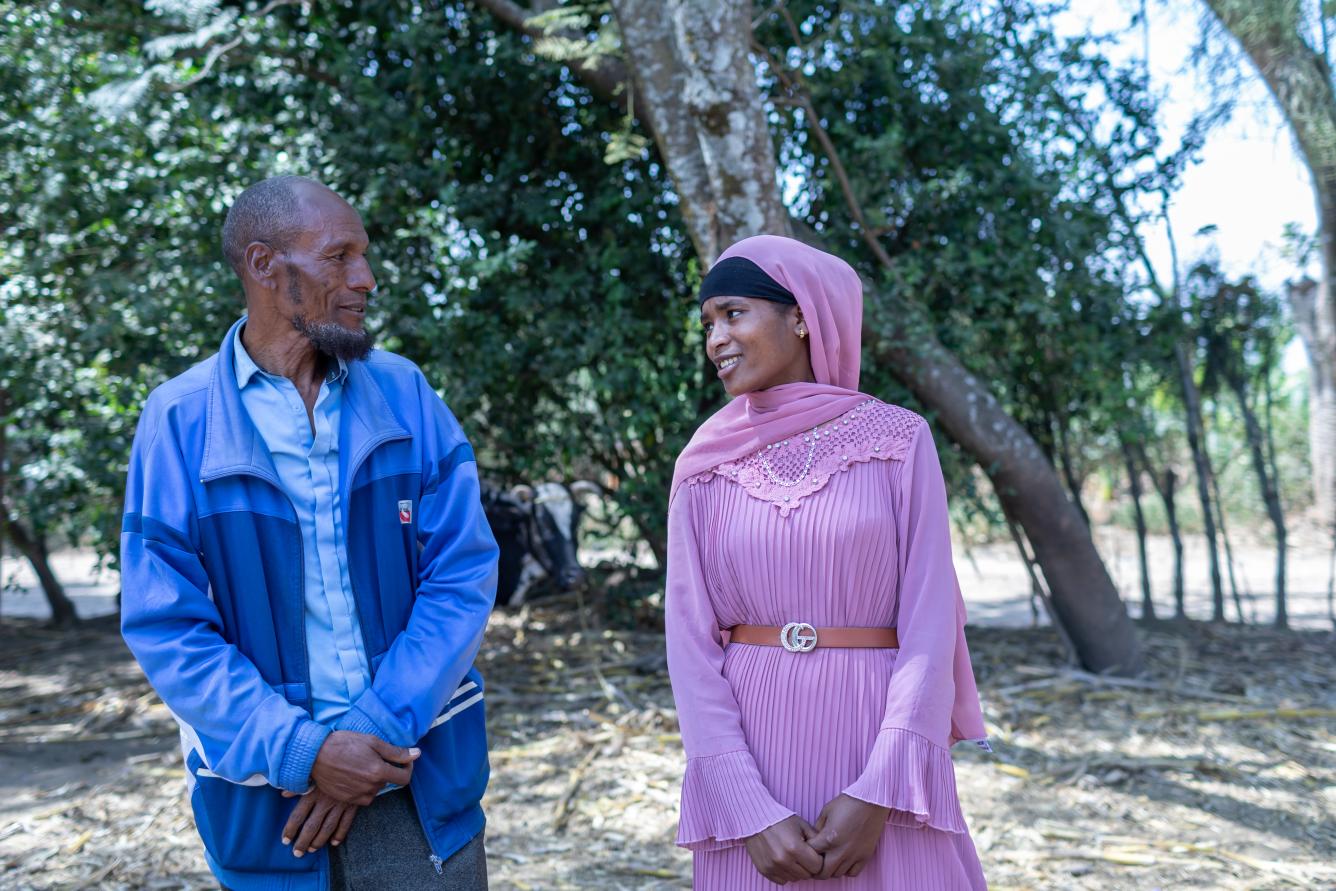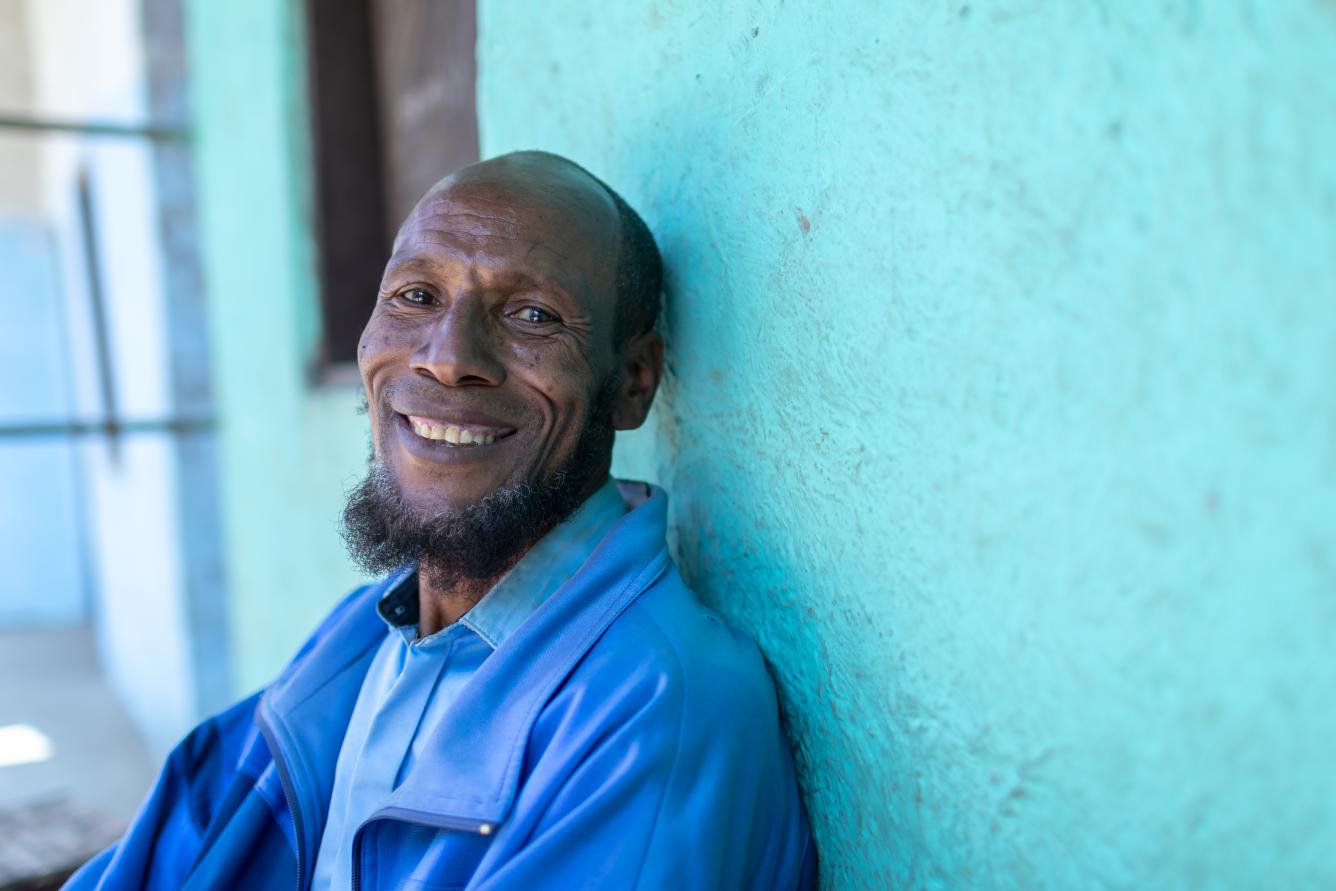Creating a safe environment for young girls

By Tarekegn Ayele, Social and Behaviour Change Officer, UNICEF Ethiopia
Azia Yusuf, 17, is a 12th-grade student from the Sidama Region in Ethiopia. As the fourth child in her family, and the third girl, Azia did not have to undergo Female Genital Mutilation (FGM), thanks to greater awareness in her community around its harmful implications.
“Female Genital Mutilation (FGM) is a harmful practice. Those who undergo FGM are affected both physically and psychologically. They may also face complications during the time of delivery, including an increased risk of fistula. Additionally, FGM can strain their relationship with their husband,” said Azia.
Azia is happy that she is saved from the practice of FGM, and she thanks her father for his involvement in creating such an environment.

“I am happy and overjoyed that my father became aware and understood the negative consequences of FGM. The change in his beliefs protected me and my three sisters from undergoing this harmful practice,” says Azia standing proudly next to her father.
Azia’s father, Sheki Abdulkadir Haji Yusuf, is the first in the family to become an advocate and take a stand against the practice.
“Four of my daughters are not victims of FGM and now they are confident to educate others about the importance of ending FGM. They also feel well and healthy,” said Abdulkadir looking at the camera. He added, “If a person loses his eyes, he is considered disabled. Similarly, if a girl is circumcised, it should be considered as the loss of her vital body part.”
Witnessing her father become an agent of change, Azia beams with pride. Abdulkadir now serves as a role model in their community. He actively educates his community members about the practice and addresses the misconception that FGM is a requirement in religion.

Through the Spotlight Initiative, a UNICEF-supported awareness program, adolescent girls like Aziza and her father are made aware of the negative consequences of FGM and bringing change in their communities which is a huge step towards ending harmful traditional practices in the Sidama Region.
“In addition to fostering discussions in the family, my father, encourages us, his children, and our friends in the neighbourhood to participate in awareness creation sessions. These sessions and discussions are organized by the local administration as well as youth groups,” said Azia.
Azia talks openly about FGM with her peers in the village and at school.
“I discuss FGM with girls from other villages at school. There is a lot of change in the community. In my village, most girls my age are not circumcised. I also came across girls who have refused to get circumcised in school. It brings me joy to see un-cut girls being appreciated in the community.”
Azia is determined to continue her effort and reach those who may not be aware of the consequences this harmful practice brings to young girls. Her goal is to ensure that all girls are free from FGM.
“My sister always regrets it. She tells me that it is a lifelong problem that cannot be fixed medically,” Azia said about her older sister who has undergone circumcision.
Support to the elderly and key community and religious leaders has been instrumental in advocating and educating the community to bring about social norms change. Empowering girls and young women to speak out about the risks and realities of FGM is crucial in amplifying their voices to say no to FGM. In this regard, Azia and her friends prioritize the out-of-school girls (OSG) forum efforts to advocate ending FGM in their village.
The Spotlight Initiative Africa Regional Program is supported through the generous contribution of the government of Belgium, Canada, France, Germany, Iceland, Italy, Luxembourg, Norway, Spain, Sweden, the United Kingdom, the United States of America and the European Union.
